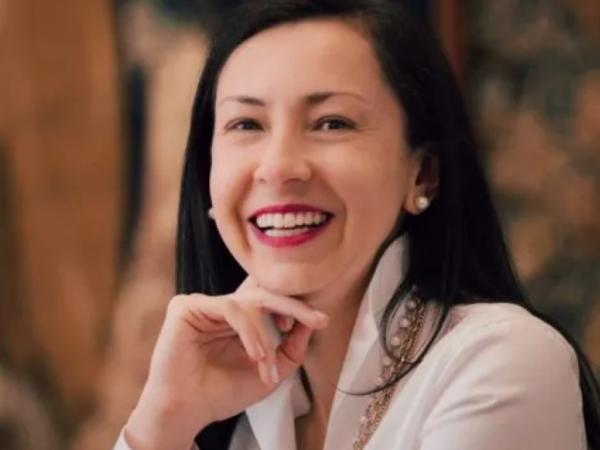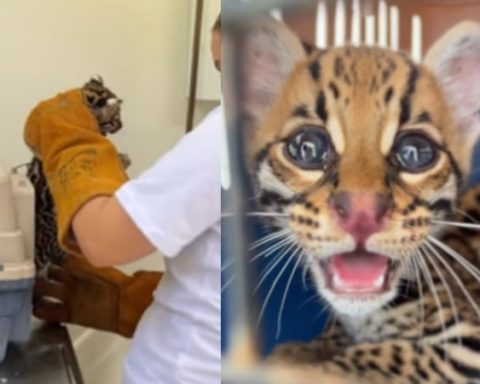After the COP16 that was held in the country in recent days, the importance of protecting biodiversity and mitigating the effects of climate change became a priority in several sectors of the country. Raquel Bernal, rector of the Universidad de los Andes, in conversation with Portafolio, explained the sustainable changes that are taking place in this area.
(See: ‘It is essential to improve educational quality and dignify teaching work’)
He assured that there is very strong work to be done from the universities, but that progress is being made, precisely, to focus training on topics that take care of the planet into account. Bernal also indicated that a great effort is being made to attract students.
Why is the participation of universities in climate change discussions important?
For all the great challenges of humanity, of which perhaps the most important is climate change and biodiversity, we are called to train the people and leaders who will inhabit this planet that is at risk today. All training should be focused on how we train that human being, entrepreneur or leader.
Universities are the places where the greatest amount of research, science, technology, and innovation is done and that is what we are doing right now. We focus on the issue of biodiversity and climate change to try to propose concrete solutions.
Our mission is also to work with communities and the social appropriation of knowledge to help protect their environment and have a dignified life. Work in communities is very important, because we help create these non-extractive economic models so that they do not become more vulnerable, but are sustainable.
(Read more: How did it go? The cities in the country with the best scores on the Saber 11 Test)
How to educate sustainably?
This is taught like everything. I don’t think I have any other technique in our students. Protecting the planet is taught as critical thinking or communication. I think it is giving the knowledge and the ways in which one can contribute to the planet.
What really worries me the most, more than my students, is civil society in general. Within the framework of COP16, many people visited us who said they did not understand the issues. Universities have to leave the university, we must be very innovative to be able to reach many more people. We want people to at least understand the risk, the minimum that must be done to live harmoniously with nature and that is a challenge.
(See: Bogotá will host a meeting on violence in Latin American education)
U. of the Andes at COP16
Courtesy
What agreements were reached at COP16?
With the leadership of the president of the Association of Science Faculties and the University of the Andes, we did an exercise to understand how much the issue of nature protection is being addressed. The research we do addresses the biodiversity protection agreement that had already been reached and is also investigated through work with communities.
We feel like we haven’t done enough and we haven’t moved fast enough. Therefore, that group signed that agreement, that pact, so that in the coming years we will all have renewed our curricula, at the same time as an exhaustive review of our research to focus more on ensuring that everything is permeated by what the country needs to comply biodiversity protection agreements.
It is a commitment to create programs, change curricula, adjust our research so that it is more relevant to what Colombia needs and to things that are not necessarily going to impact our biodiversity.
(Read also: Uniminuto receives new patents for sustainable innovations: this is what they are like)
Additionally, what was left of COP16?
The university had 61 events with some of the exhibitions that were very interesting. We took our shark exhibit to Cali. At the conference we had 23,000 visitors. This is an example of what it means to take the university out of the university, because we use that exhibition so that people understand a little about the protection of the oceans.
(See: Unicervantes promotes the future of Colombia through education)

University of the Andes
University of the Andes
What challenges do you see in dropout, difficulty in access to education, among other current issues?
In these challenging times we are always trying to innovate, pioneer, lead, and right now we have the highest number of undergraduate students we have ever had in history. We have really made a great effort to attract students.
We have a difficulty and that is that the target population is leaving the country and all this has worked for us to show them that it is worth staying here and planning an international exchange. The demographic transition is very strong: only in Bogotá it fell 15% from one year to the next, but we have grown a lot in continuing education. From 6,000 students over 10 years, we now have 33,000 throughout life.
We have the intention of soon also serving, through technical and technological means, a large population of young people who are unable to advance to higher education.
(Read: ‘We are going to take our first steps in internationalization’: Estrella Education)
And the reform discussions?
In the last legislature, the proposed statutory law did not advance. At this time, only one adjustment to the articles of Law 30, on the financing of public universities, is underway. I do believe that the public university has been relatively underfunded and that to increase it is necessary to rethink financing in a more coherent way.
I am only concerned that in the article they leave very open a request for annual resources that in cases must be allocated in the General Budget of the Nation. These are things that are not funded and, as always, the fiscal impact is worrying.
(See: Universities address biodiversity challenges at COP16)

















